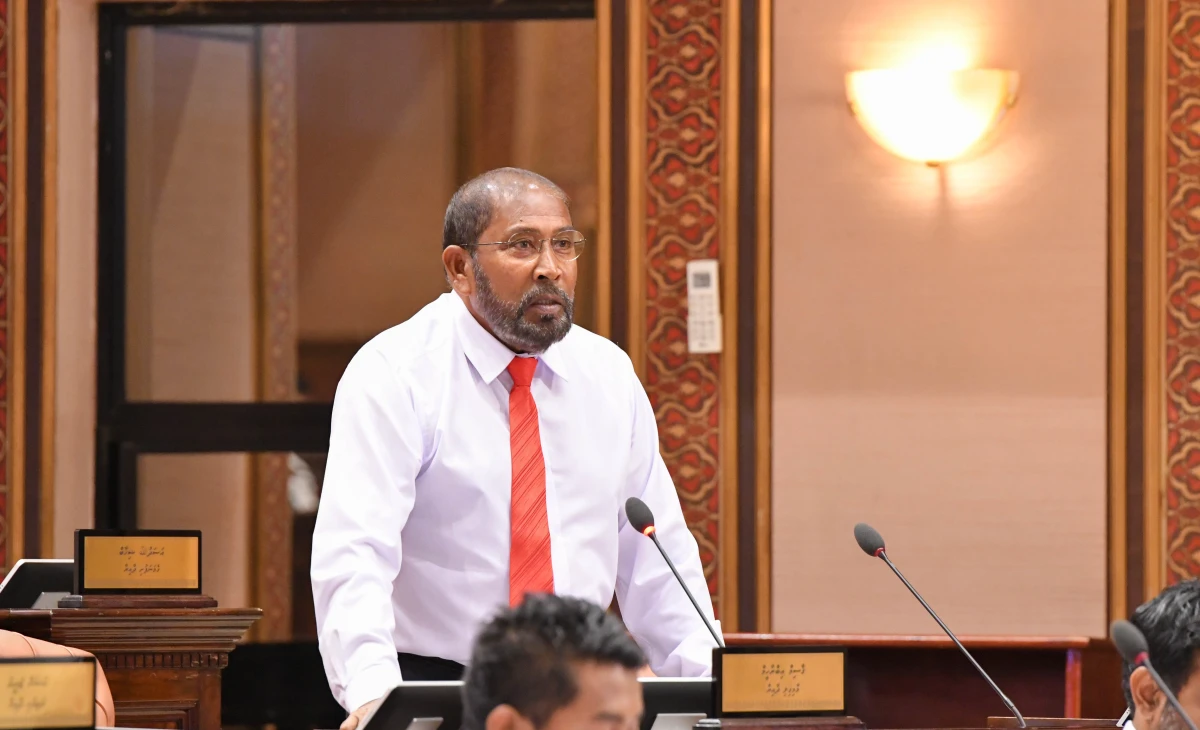Sun, 22 Feb 2026
|DHIVEHI
Citizens stand to gain from decentralisation amendments, says MP Qasim
17 Aug 2025
|

MP Gasim Ibrahim addressing the 25th sitting of Parliament-- Photo: People's Majlis
Member of Parliament for Maamigili constituency and leader of the Jumhooree Party, Qasim Ibrahim (O.D.R.I), has defended the amendments to the Decentralization Act, stressing that they are intended to benefit citizens rather than restrict local governance.
In a statement released on Sunday, Qasim said the amendments are necessary given the current situation in the Maldives, adding that the advantages of the amendments lie with the citizens.
His remarks come amid criticism from local councils, who have raised concerns that the changes could curtail their powers and undermine the principles of decentralisation. Qasim, however, rejected these claims, maintaining that the amendments will strengthen governance and ensure more consistent services for communities across the country.
Citing the Constitution, which defines the Maldives as a Unitary State, Qasim emphasised that decentralisation laws must reflect this framework without contradicting the administrative system. He argued that, in the 14 years since the Decentralization Act was first enacted, its provisions have often been interpreted in ways resembling a federal system. According to him, this has fuelled political friction, with opposition parties using decentralisation as a tool to advance agendas against ruling governments.
Qasim also highlighted a key provision in the amendments, which checks certain council decisions if their term is set to expire within 365 days. Under this clause, councils may only appoint staff, lease land, lagoons or reef areas, or initiate development projects outside approved plans in line with guidelines issued by the Ministry of Finance and the Local Government Authority (LGA). He said this safeguard would help prevent unfair practices in the run-up to local council elections.
While noting that the terms of sitting local councils will expire in May 2026, Qasim reiterated that councils should operate in accordance with the principles of a unitary state. He insisted that the amendments ultimately serve the best interests of citizens by promoting accountability and stability in governance.








